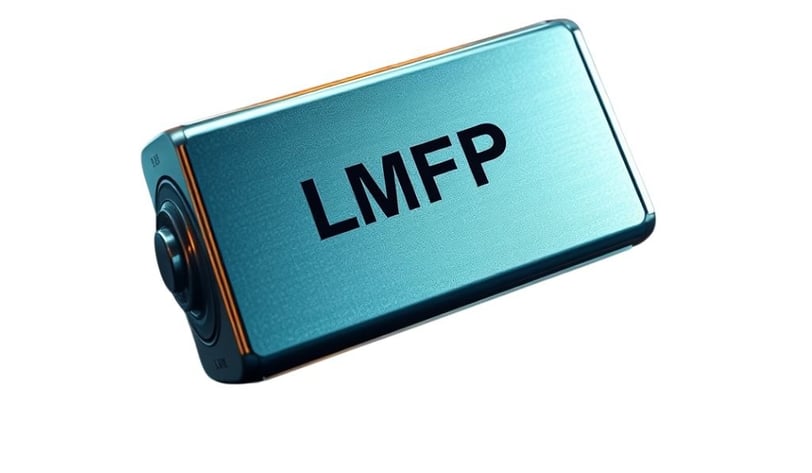LMFP Cell Chemistry: High Energy Density with Enhanced Safety


Lithium Manganese Ferrophosphate (LMFP) cell chemistry is an advanced variation of lithium-ion batteries that incorporates manganese into the cathode composition, combining the benefits of Lithium Iron Phosphate (LFP) with increased energy density and improved performance. By utilizing a lithium manganese ferrophosphate cathode, LMFP batteries offer a perfect balance between safety, efficiency, and energy storage capabilities, making them suitable for modern applications like electric vehicles (EVs), renewable energy storage, and industrial systems.
Key Features and Advantages
High Energy Density
LMFP batteries enhance the energy density of traditional LFP batteries, achieving up to 15-25% higher capacity.
The inclusion of manganese allows for an increased operating voltage, typically around 4.1V per cell, enabling greater energy storage without compromising safety.
Enhanced Safety
Similar to LFP chemistry, LMFP batteries maintain excellent thermal and chemical stability, reducing risks such as thermal runaway or fire.
The phosphate framework in the cathode ensures structural integrity during charge and discharge cycles, even under extreme conditions.
Long Cycle Life
LMFP batteries offer a comparable cycle life to LFP batteries, typically exceeding 2000–5000 cycles, depending on operating conditions.
The robust cathode material minimizes degradation over time, ensuring consistent performance for long-term use.
Improved Performance
LMFP cells exhibit better high-temperature performance compared to standard LFP cells, making them suitable for demanding environments.
They maintain a wide operational temperature range (-20°C to 60°C) while offering high power density and excellent charge/discharge efficiency.
Cost-Effectiveness and Sustainability
By utilizing abundant materials like iron, manganese, and phosphate, LMFP batteries reduce reliance on expensive and less sustainable elements such as cobalt and nickel.
Their eco-friendly composition supports sustainability goals and reduces environmental impact.
Applications
Electric Vehicles (EVs): LMFP batteries are ideal for EVs due to their high energy density, ensuring longer driving ranges while maintaining safety.
Energy Storage Systems (ESS): With enhanced energy capacity and stability, LMFP cells are an excellent choice for grid-scale renewable energy storage.
Consumer Electronics: The high energy density and safe operation make LMFP batteries suitable for portable devices and power tools.
Industrial Applications: Widely used in heavy-duty machinery, robotics, and backup power systems requiring dependable energy solutions.
Why Choose LMFP Batteries?
LMFP cell chemistry represents the next step in lithium-ion battery evolution, combining the proven safety and longevity of LFP chemistry with increased energy density and operational efficiency. These batteries are perfect for applications requiring a balance between high energy storage, safety, and sustainability.
For industries and consumers looking for reliable, long-lasting, and eco-friendly energy solutions, LMFP batteries provide a future-ready option to meet diverse energy demands.
#CHEMVOLTMINERALS
Explore our commitment to sustainable mining practices.
Copyright © 2025 ChemVolt Minerals - All Rights Reserved.


